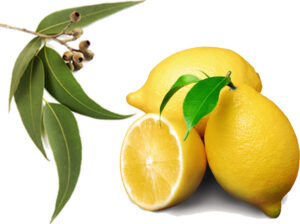BreatheEase Rollerballs and Spray

10 ml Rollerball containing organic eucalyptus, lemon, geranium, and grapeseed essential oil – $15
2 ounce Spray containing organic eucalyptus, lemon, geranium, and grapeseed essential oil in a purified water base – $12
Studies:
Eucalyptus oil inhalation – a possible protocol
Stage 1. In this stage people are not infected, and working on the assumption that eucalyptus oil contains a variety of phytoncides, then inhaling the vapour of a few drops of eucalyptus oil diluted in a cup or bowl of very warm water will increase the activity and number of natural killer cells in the body, so that the immune system is effectively boosted to cope with whatever infection comes along, or may already be present (Li 2007) This could be through direct inhalation, but also vapour in homes, dispersed with a nebuliser or fan (but not if pets are inside).
The phytoncide immunity boosting effect may simply be the immune system responding to foreign substances entering the body, and so it may not make a great deal of difference which phytoncides are used. If this is so, then other volatile organic compounds emitted by coniferous trees, herbs, lemongrass, etc., may also be effective, however eucalyptus oil has the advantage of being tried and tested for many decades, while other untested oils/vapours could result in allergic or other adverse reactions in some people. Caution is advised.
Inhaling the vapour of eucalyptus oil diluted in water has virucidal action and may kill some or most of the virus particles in some or all of the air ways (not proven yet with the virus said to cause C19). Perhaps preventatively when virus particles enter, and shortly after if they have already entered. Therefore it may be a good idea to inhale the vapours both before and after entering confined spaces where other people are present. If the infection starts with a smaller dose of virus particles because some or most of them have been inactivated, it would normally take longer for the virus numbers to build up, which allows more time for the immune system to respond, and this is likely to result in a less severe infection. This could mean the difference between a mild rather than a severe infection, or the difference between a severe case rather than death.
Stage 2. In the very early stage of infection, eucalyptus vapour could perhaps keep the number of viral particles on the surfaces of the airways down to a minimum. Inhalation could perhaps be up to three times a day, if this can be tolerated. Again, caution is advised.
Stage 3. The anti-inflammatory properties of eucalyptus could just possibly reduce inflammation in the lungs and elsewhere in the body, which could reduce fluid build up in the lungs, and therefore there may be less respiratory distress, but at this stage of the disease a person should be in hospital, where doctors can decide if there may be any benefit to this. Perhaps eucalyptus oil could be added to oxygen breathing apparatus.
Anecdotally people all around the world have had good health outcomes with inhaling eucalyptus oil vapour, for many ailments, including assorted viruses, for many decades, with very few people reacting badly to it, so it may be worth trying in case it does some good as a therapy against C19.
Even if eucalyptus oil has no direct antiviral action whatsoever on the virus said to cause C19, it may still result in better health outcomes if it alleviates certain other health conditions, i.e. reduces comorbidities.
If a combination of non-pharmaceutical interventions such as hand washing, with supplements of vitamins and minerals and improvements in diet and lifestyle, and inhaling eucalyptus oil as a phytoncide and possibly virucide, reduces the spread and severity of the virus said to cause C19 to something more like the ordinary seasonal flu, then people can get back to work, or get a new job, along with perhaps physical distancing and face masks, to salvage economies around the world.
David Clode B. App.Sc. (Hort.). Melbourne University.
References Carson, C. F. et al.(2006). Melaleuca alternifolia (Tea Tree) Oil: a Review of Antimicrobial and other Medicinal Properties. Clinical Microbiology Reviews, Jan 2006, p. 50-62. Geonwoo, Kim et al.(2015). Healing Environments of Major Tree Species in Kyushu University Forests: A Case Study. Journal-Faculty of Kyushu University. Li, Q, et al.(2007). VISITING A FOREST, BUT NOT A CITY, INCREASES HUMAN NATURAL KILLER ACTIVITY AND EXPRESSION OF ANTI-CANCER PROTEINS. International Journal of Immunopathology and Pharmacology. Vol. 21, no 1, 117-127 (2008). Li, Q, et al.(2009). EFFECT OF PHYTONCIDE FROM TREES ON HUMAN NATURAL KILLER CELL FUNCTION. International Journal of Immunopathology and Pharmacology. Vol. 22, no 4, 951-959 (2009). Mallapa Kumara Swamy, Mohd Sayeed Akhtar, and Uma Rani Sinniah.(2016). Antimicrobial Properties of Plant Essential Oils against Human Pathogens and Their Mode of Action: An Updated Review. Hindawi Publishing Corporation. Evidence-Based Complementary and Alternative Medicine. Pyankov, O. V, et al.(2012). Inactivation of Airborne influenza Virus by Tea Tree and Eucalyptus Oils. Aerosol Science and technology, 46:12, 1295-1302. Sadlon AE, Lamson, DW. Immune-modifying and antimicrobial effects of Eucalyptus oil and simple inhalation devices. 2010;15(1):33-47. Selvarani Vimalanathan, James Hudson.(2014). Anti-influenza virus activity of essential oils and vapours. American Journal of Essential Oils and Natural Products. Serafino, Amalucia, et al. (2008). Stimulatory effect of Eucalyptus essential oil on innate cellmediated immune response. BMC Immunology 2008. 9:17. Sharma, Arun Dev, and Kaur, Inderjeet.(2020). Eucalyptol (1,8-cineole) from eucalyptus essential oil a potential inhibitor of COVID-19 corona virus infection by molecular docking studies. Preprint. www.preprints.org.
Another Study:
https://www.ncbi.nlm.nih.gov/pmc/articles/PMC7427755/
Eucalyptus essential oil is not safe for use by pregnant women
It can present as neurotoxic. For this reason, it is best avoided by persons with epilepsy and other types of neurological disorders such as schizophrenia.
Geranium and Lemon Essential Oil Study
The angiotensin-converting enzyme 2 (ACE2) receptor, a host cell receptor, has been found to play a crucial role in virus cell entry; therefore, ACE2 blockers can be a potential target for anti-viral intervention. In this study, we evaluated the ACE2 inhibitory effects of 10 essential oils. Among them, geranium and lemon oils displayed significant ACE2 inhibitory effects in epithelial cells. In addition, immunoblotting and qPCR analysis also confirmed that geranium and lemon oils possess potent ACE2 inhibitory effects. Furthermore, the gas chromatography-mass spectrometry (GC–MS) analysis displayed 22 compounds in geranium oil and 9 compounds in lemon oil.
The results suggest that geranium and lemon essential oils and their derivative compounds are valuable natural anti-viral agents that may contribute to the prevention of the invasion of the virus said to cause C19 into the human body.
https://www.ncbi.nlm.nih.gov/pmc/articles/PMC7355681/
Disclaimer – we are not suggesting this product or any of our products as a cure or treatment for C19 or anything else. Always consult your healthcare professional when adding new regimes to your current wellness plan.
Categories: Solutions